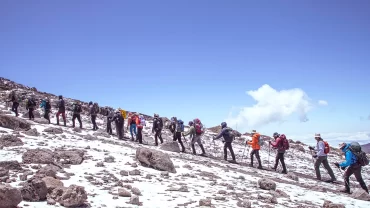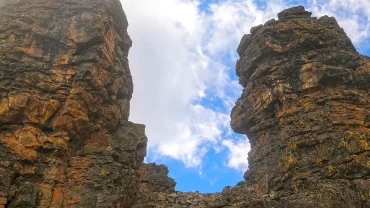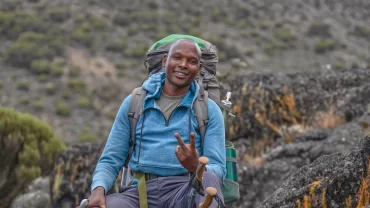Mount Kilimanjaro is more than just a trekking destination—it’s a natural wonder that needs to be preserved for future generations. As the tallest freestanding mountain in the world, Kilimanjaro’s fragile ecosystems, unique wildlife, and breathtaking landscapes require careful management to ensure their sustainability. At Dismass Kilimanjaro Experience, we believe that adventure and conservation go hand in hand. Through responsible tourism, eco-friendly initiatives, and community involvement, we are dedicated to promoting sustainable travel on Kilimanjaro.
1. Responsible Trekking Practices
One of the most critical aspects of sustainable travel is minimizing the environmental impact of trekking. At Dismass Kilimanjaro Experience, we adhere to Leave No Trace principles to ensure our climbs are as eco-friendly as possible:
- Pack It In, Pack It Out: We carry all waste off the mountain, ensuring that no litter is left behind.
- Designated Trails: Our guides ensure trekkers stick to designated routes to prevent soil erosion and damage to fragile vegetation.
- Eco-Friendly Camping: We use biodegradable soaps, reusable containers, and minimal plastic to reduce waste.
- Porter Load Regulations: We strictly follow porter weight limits to protect workers’ health and well-being while ensuring ethical climbing practices.
2. Supporting Reforestation and Conservation Efforts
Deforestation and climate change threaten Kilimanjaro’s iconic glaciers and lush rainforests. To combat this, Dismass Kilimanjaro Experience actively supports reforestation programs:
- Tree Planting Initiatives: We collaborate with conservation organizations to plant thousands of trees annually in deforested areas.
- Carbon Offset Programs: Clients are encouraged to participate in carbon offset programs, helping reduce the overall footprint of their climb.
- Wildlife Protection: We support anti-poaching initiatives in Kilimanjaro National Park and educate climbers on the importance of preserving local fauna.
- Glacial Preservation Awareness: Our guides educate climbers on the impact of climate change on Kilimanjaro’s glaciers and what can be done to slow the effects.
3. Ethical Porter and Guide Treatment
A truly sustainable trekking experience isn’t just about protecting the environment—it’s also about supporting the people who make the journey possible. Dismass Kilimanjaro Experience is committed to ethical porter treatment:
- Fair Wages & Ethical Employment: We ensure that all porters and guides receive fair wages, proper meals, and suitable accommodations.
- Training & Skill Development: We invest in training programs, helping porters advance their skills in guiding, first aid, and language proficiency.
- Proper Equipment & Gear: We provide high-quality clothing and gear to porters to protect them from extreme mountain conditions.
- Porter Welfare Programs: We collaborate with organizations like the Kilimanjaro Porters Assistance Project (KPAP) to improve working conditions and provide financial literacy training.
4. Reducing Single-Use Plastic on Kilimanjaro
Plastic pollution is one of the most pressing environmental challenges worldwide. At Dismass Kilimanjaro Experience, we have taken active steps to eliminate plastic waste on the mountain:
- Reusable Water Bottles: We provide and encourage the use of refillable water bottles and purification systems to minimize bottled water waste.
- Banning Plastic Bags: Single-use plastic bags are prohibited in all of our trekking operations.
- Eco-Friendly Meal Packaging: We use biodegradable and reusable meal packaging to minimize waste and environmental impact.
- Waste Collection Initiatives: Our teams participate in regular clean-up efforts along trekking routes to ensure the mountain stays pristine.
5. Community Engagement and Sustainable Tourism
Sustainable tourism goes beyond environmental conservation—it’s about empowering local communities. Dismass Kilimanjaro Experience works closely with local communities to create a positive impact:
- Supporting Local Businesses: We source food and supplies from local farmers and markets to boost the local economy.
- Cultural Preservation: We encourage responsible cultural interactions, including visits to Maasai and Chagga villages where tourists can learn about Tanzania’s rich heritage.
- Giving Back Initiatives: A portion of our proceeds goes toward educational programs, healthcare initiatives, and community development projects.
- Women Empowerment Programs: We support programs that promote the inclusion of women in Kilimanjaro trekking roles, such as female porters and guides.
6. Eco-Friendly Accommodations
For travelers looking for sustainable travel on Kilimanjaro, we partner with eco-friendly lodges and accommodations that align with our mission. Many of these lodges use:
- Solar Power: To reduce dependency on fossil fuels, minimizing carbon emissions.
- Water Conservation Systems: Including rainwater harvesting, low-impact water usage, and greywater recycling systems.
- Sustainable Building Materials: Many eco-lodges are constructed using locally sourced, sustainable materials that reduce environmental impact.
- Organic Food Production: Many partner lodges cultivate organic fruits and vegetables to ensure fresh and locally grown meals.
7. Sustainable Travel Tips for Climbers
Trekkers also play a crucial role in protecting Kilimanjaro. Here’s how climbers can contribute to sustainable travel:
- Bring a Reusable Water Bottle: Avoid buying plastic bottled water and use purification tablets or filters.
- Stick to Trails: Prevent unnecessary damage to vegetation by following designated trekking routes.
- Respect Wildlife: Do not disturb, feed, or touch animals while on the trek.
- Use Eco-Friendly Toiletries: Biodegradable soaps and shampoos help prevent water contamination.
- Choose Ethical Trekking Companies: Supporting operators like Dismass Kilimanjaro Experience ensures sustainability is prioritized.
Conclusion
At Dismass Kilimanjaro Experience, sustainability is not just a policy—it’s a responsibility. By adopting eco-friendly practices, supporting local communities, and promoting ethical trekking, we ensure that Kilimanjaro remains an awe-inspiring destination for future generations. Whether you’re planning your first climb or returning for another adventure, remember that your journey can make a difference.
Join us in our mission for sustainable travel on Kilimanjaro and climb with purpose!





Comment (0)